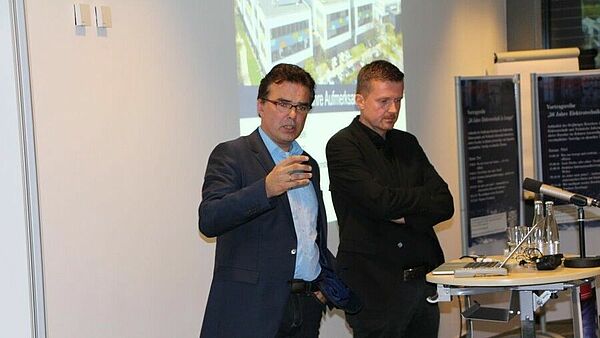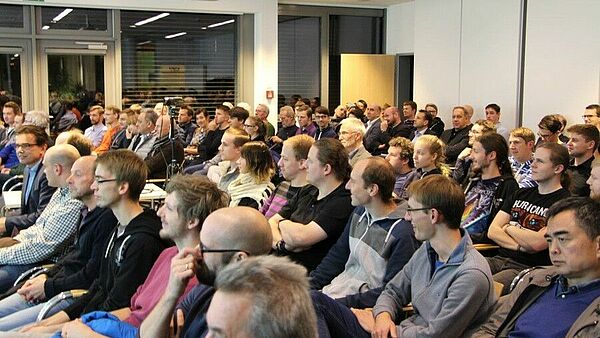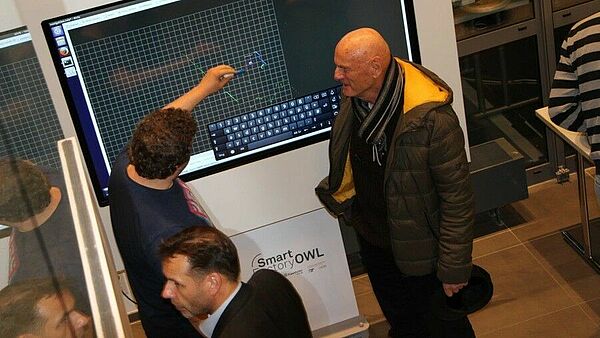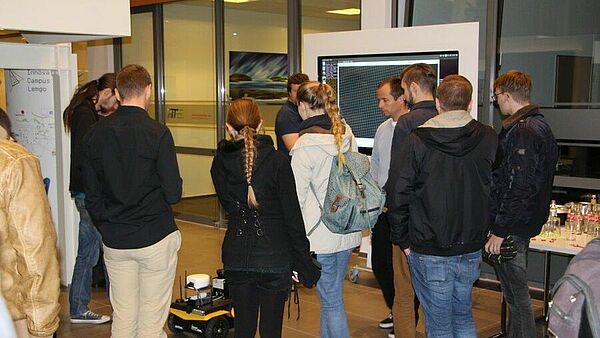Algorithms, intelligent software and robots more and more undertake the tasks of the human. The perceptivity of the AI is no longer restricted on data retention. Analysis of the surrounding, autonomous reading and speech comprehension – a self-dependent control of vehicles or a complete factory is not far. How does this development of AI influence our life, working world and humanity? In their public speech the researchers presented different practical examples for intelligent technical systems and gave answers what the term “Artificial Intelligence” describes. “Intelligence is created by the interaction of many individual parts – which are per se not intelligent at all”, so Niggemann.
Technical systems are controlled by electronics, sensors, communication, information processing and actuators – a full sphere of activity is created in which systems can operate autonomously. “But where is intelligence now?” asked Jasperneite the listeners. “For example the use of advanced sensors – a system is able to perceive its surrounding more detailed than possible today.” Furthermore there will be advanced systems in the field of Human-Machine-Interaction as well as a further networking of these systems via internet with other intelligent systems, so Jasperneite. A forecast for 2025 is the networking of 50 billion things – with a daily add of 5 million things.
Both the researchers emphasized in their lecture that there are opportunities and risks associated with AI, in the daily life and in industry. The audience was enthusiastic about the insights into the research environment. Also the demonstration went well. A totally successful event, agreed the professors.
inIT of OWL University is a main pillar of the technology network “Intelligent Technical Systems OstWestfalenLippe” (it’s OWL). Together with world market leaders the experts develop intelligent products and production systems, which support day-to-day business. The network works on innovations in the field of automation and drive solutions – from machines, vehicles, and appliances to linked production plants. Therewith they contribute to safeguarding the future of the high-tech-production site Germany.





